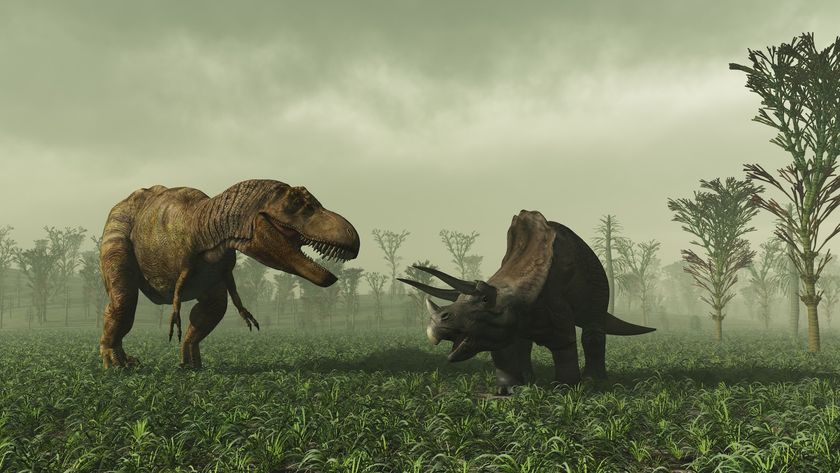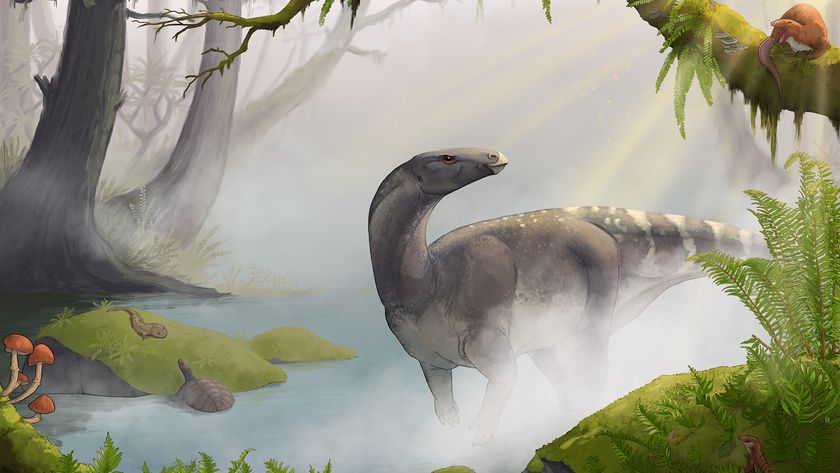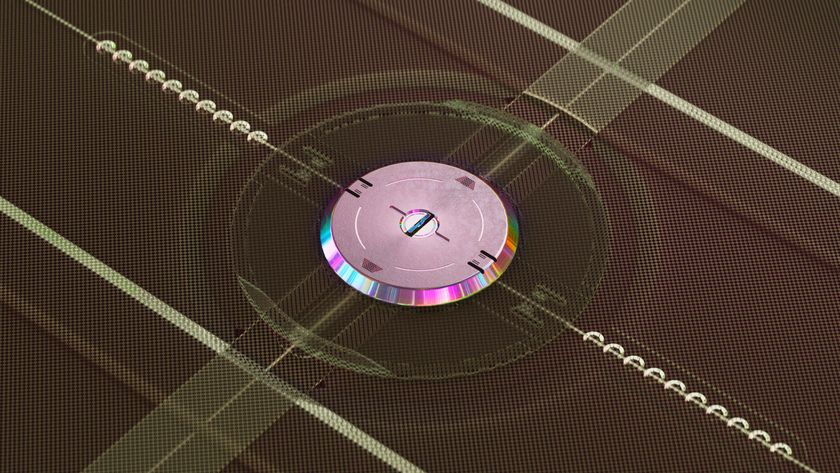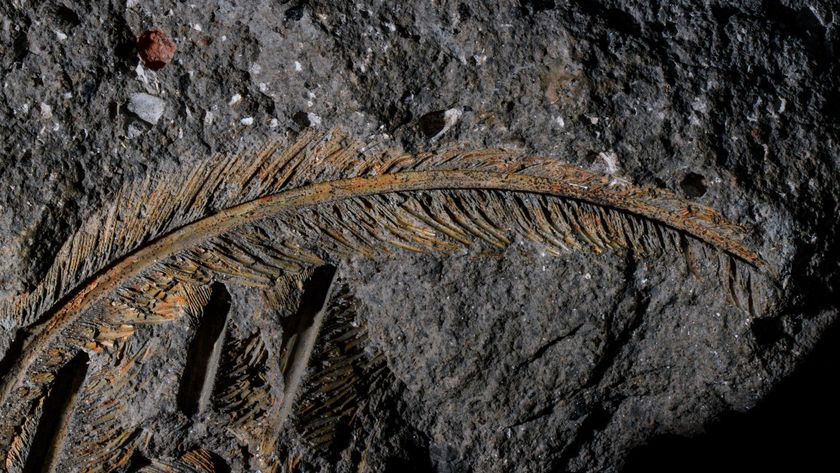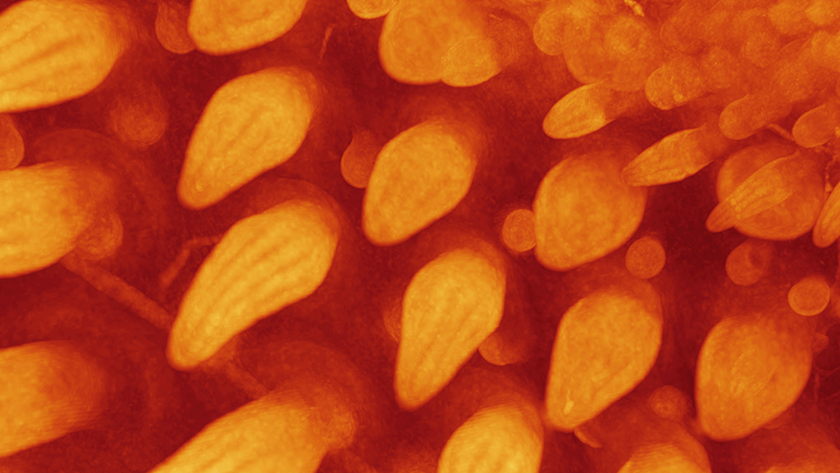Most Primitive Dinosaur Embryos Discovered
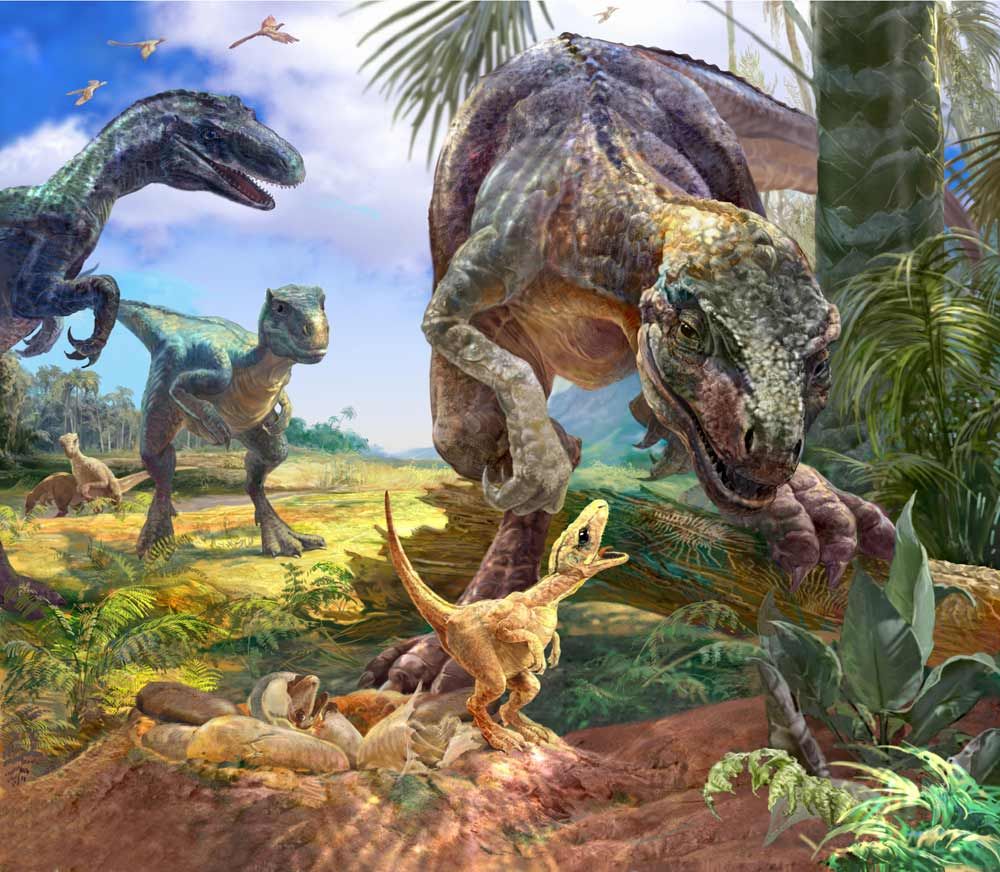
A dinosaur nest discovery has revealed the most primitive known dinosaur embryos, which are among the oldest ever found.
The eggs belong to Torvosaurus, a T. rex-like predator that stalked the late Jurassic some 150 million years ago. Torvosaurus grew to be around 30 feet (9 meters) long, but the fragmented embryos discovered in Portugal were probably only about 6 inches (15 centimeters) in length.
"This is shedding some light on the early stages of the development of these types of dinosaurs," said Ricardo Araújo, a doctoral candidate in paleontology at Southern Methodist University in Texas. [See Photos of Dinosaur Embryos and Hatchlings]
A surprising find
The crushed clutch of eggs was found in 2005 by amateur fossil-hunter and fossil cast-maker Art Walen, who was on an annual vacation to the fossil-rich Lourinhã Formation in western Portugal.
"He just stumbled across some eggshells, and he traced the eggshells up the cliffs and he found there were not only isolated eggshells, there was also an entire nest up there," Araújo told LiveScience.
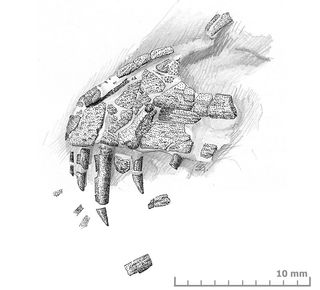
Paleontologists from the Museu da Lourinhã excavated the nest, which researchers first assumed belonged to a long-necked sauropod dinosaur. Even in the field, however, the paleontologists began to think they might have something very different on their hands. The eggs' surfaces were ornamented with a strange, almost honeycomb-like pattern that was quite distinct from anything the researchers had ever seen, Araújo said.
Sign up for the Live Science daily newsletter now
Get the world’s most fascinating discoveries delivered straight to your inbox.
Once the specimen was excavated and brought to the museum for preparation, the researchers got another surprise: There were embryo bones mixed in with the crushed eggs.
Such a find is "extremely rare," Araújo said. "There's probably a handful of situations like this in the world."
Dinosaur development
The bones enabled the researchers to link the nest back to a specific species of dinosaur. Torvosaurus was a theropod, a group that includes both Tyrannosaurus rex and modern birds. The specimens are the earliest theropod embryos ever found.
They're also the most primitive, Araújo said. Torvosaurus is on an early branch of the dinosaur family tree, making them "basal theropods," or very early examples of the group. So while other dinosaur embryos (including some found recently in China) date back to earlier eras, Araújo said, the new discoveries are the most primitive in terms of dinosaur evolutionary relationships.
The find reveals some secrets of egg evolution. Modern bird eggs are made up of three layers, Araújo said, and most dinosaur eggs have two layers. The Torvosaurus eggs are so primitive that they have just one layer.
"This is the first evidence for a one-layered eggshell for theropod dinosaurs ever found," Araújo said.
The exceptionally preserved shells are marked by a series of wide, interconnected pores. Pores allow the eggs to "breathe," and their size depends on whether the eggs are exposed to moisture or dry air. The size and shape of the Torvosaurus egg pores suggest they were buried in a moist environment for incubation, Araújo said.
He and his colleagues report the findings today (May 30) in the journal Scientific Reports.
Follow Stephanie Pappas on Twitter and Google+. Follow us @livescience, Facebook & Google+. Original article on LiveScience.com.

Stephanie Pappas is a contributing writer for Live Science, covering topics ranging from geoscience to archaeology to the human brain and behavior. She was previously a senior writer for Live Science but is now a freelancer based in Denver, Colorado, and regularly contributes to Scientific American and The Monitor, the monthly magazine of the American Psychological Association. Stephanie received a bachelor's degree in psychology from the University of South Carolina and a graduate certificate in science communication from the University of California, Santa Cruz.
